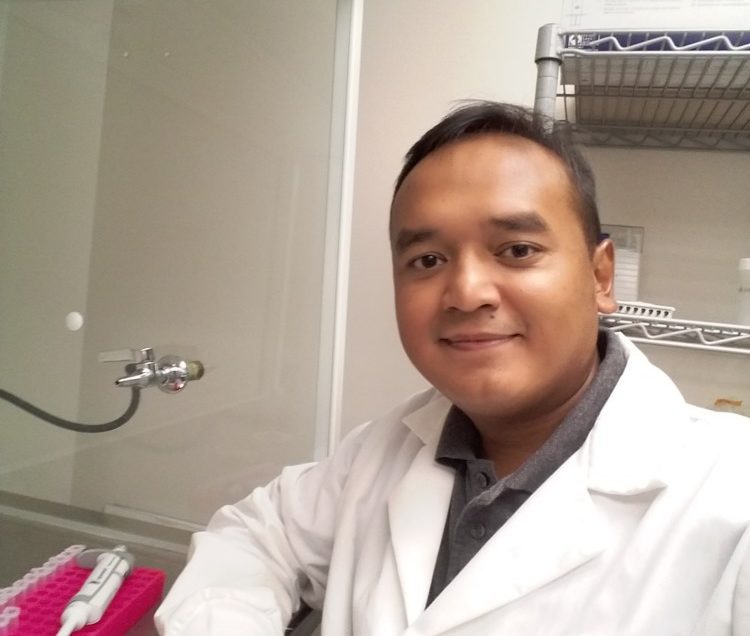Peanut farming plays a significant role in the South Carolina economy. The state is one of the largest peanut producing states in the US –– and is projected to produce over 217 million pounds by the end of the growing year.
Disease can have a devastating impact on peanut productivity and disease management is one of the most expensive aspects in peanut production.
Misbah Munir, a plant and environmental sciences graduate student, dedicates his studies to the peanut industry, and specifically, to the concept of disease management.
Munir recently attended the 51st Annual American Peanut Research and Education Society (APRES) meeting in Auburn, Al., where he won second place for his research poster describing a new approach for detecting pathogens that cause diseases in peanuts.
Munir proposes a detection method which uses Polymerase Chain Reaction to obtain a rapid and sensitive detection system for the pathogens that cause Lafe Leaf Spot, the most damaging disease in peanut fields in South Carolina. Munir’s study provides a method that enables farmers to detect Late Leaf Spot when it is not yet causing significant disease and is easiest to control. This research is significant because disease identification is critical for developing effective and low-cost approaches to disease management.

“Early detection is crucial for the management of these diseases, as it allows for optimal timing fungicide applications,” said Munir. “Together with other approaches in the Integrated Pest Management (IPM) program for Late Leaf Spot, this method can help to make disease management more effective, efficient, and sustainable. It will help South Carolina maintain its high-quality, high-quantity peanut production and allow it to remain one of the nation’s largest peanut-producing states.”
APRES brings together experts from different disciplines to support all aspects of peanut production from pre-harvest to post-harvest. The APRES gatherings allow members to analyze, elaborate and find the best solutions for any substantial problem in U.S. peanut production. The society also facilitates cooperation on an international scale, encouraging global conversation on research collaboration and genetic exchange.
“I’m so proud to be a member of APRES and to participate in any of APRES meetings,” said Munir. “These meetings are a good way for graduate students who work on peanuts to communicate their research findings to the peanut society as well as to build and extend networks.”
Munir’s research mentor, Extension peanut specialist Dan Anco, speaks highly of Munir’s academic abilities, disposition, and contributions in the lab:
“Misbah has been an invaluable team member of the Peanut Lab. He has careful, inquisitive thought and is not afraid of hard work to bring ideas to fruition. Matching his productivity is his positivity, which makes him pleasant all around to be around and work with,” said Anco.
Munir aspires to someday spearhead research in plant pathology or crop protection for a university, a government entity, or a private company. He also seeks to lead a technological dissemination program that may include scouting, recommendation service, and grower training.
“The research projects that I’m working on in Dr. Anco’s extension program combine some classic plant pathological methods with modern molecular methods in an effort to understand pathogen biology, disease epidemics and disease control of late leaf spot on peanut crop,” said Munir. “Many of the approaches of my current research to manage Late Leaf Spot on peanuts can be useful and applicable to manage other plant diseases on whichever crops I’m going to work with in the future. “
Get in touch and we will connect you with the author or another expert.
Or email us at news@clemson.edu

